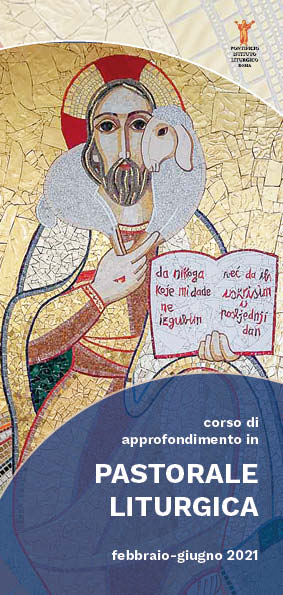Liturgical Pastoral Care
The Pontifical Institute of Liturgy proposes an in-depth course in Liturgical Pastoral Care, with the aim of perfecting the formation of all those involved in the liturgy, from presidency to animation, and supporting them in facing the challengesto which the contemporary Church is called to respond. Indeed, the Council teaches that the liturgy is the culmination and source of Christian life, but it is noted that it is often assimilated to other pastoral activities and does not manifest its characteristic nature as the center of the path of the ecclesial community and as the fulcrum of spiritual life and action of evangelization. Furthermore, postmodern contemporary culture, by its nature didactic and accustomed to the sensational, has distorted the words, signs and gestures of the celebratory experience, risking the suffocation of the Mystery.
The training course proposes an itinerary that helps the participants, through lessons, dialogue with teachers and personal study, to confront and reflect on the themes proposed, to elaborate a new ecclesial pointof view on liturgical pastoral care. The course is held live online (recordings will also be made available) and at the end of each lesson there is usually a short discussion with the teacher.
Duration
16 lessons of 3 hours, every Tuesday from 2:30 to 4:45 p.m. Mode
The on-line lessons can be followed live or by downloading the recording. Purpose of the course
Fields of application
Recipients
Priests (especially those in charge of diocesan liturgical offices, parish priests and new parish priests), permanent deacons, women and men religious (especially those in charge of the liturgical and musical animation of religious communities or provinces), acolytes and readers, ministers, those responsible for liturgical celebrations, organists, choir directors and choristers, church architects, catechists, lay and laity (especially members of parish liturgical groups). Attestations and requirements
Fees
Registration €300,00.Final test (new)
Those wishing to take the exam in order to obtain the ECTS, must deliver a written work of about 15 pages on one of the lessons of the course, attaching it by email to the registrar, addressed to the course coordinator.
The theme does not have to be approved by the teachers, but can be chosen directly by the student.
The work must not be a summary of what the teacher has taught, but, in light of the existing bibliography, must show the ability to reflect on the topic and to present one's own motivating point of view. In addition, it must offer some pastoral lines in view of or in light of one's ministry (baptismal or diaconal or presbyteral, or in the context of consecrated life).
The work must be received by 15 July 2021. After this date it will be considered as delivered in the next exam session.
Program {mlang}


